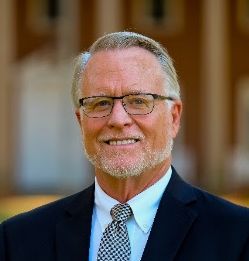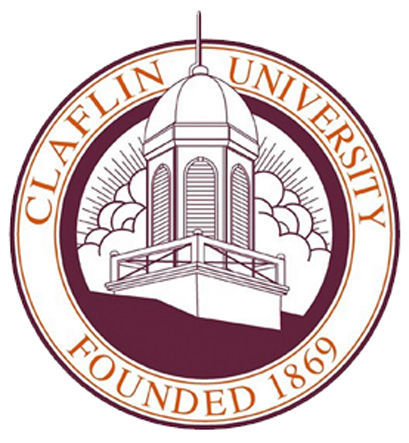
Interim President, Erskine College
What is the guiding principle or set of principles for your practice of leadership?
Educational institutions flourish in an atmosphere of collegiality. Mutual respect between stakeholders in the college and seminary fosters the implementation of the school’s core values, which in the case of Erskine College and Seminary, are codified in the Associate Presbyterian Church’s “Philosophy of Christian Higher Education.”
Does this statement serve as your guide?
As the leader of both the seminary and the college, my role is to articulate the core values derived from this seminal document, and by creative application of these principles, lead the seminary and the college in a direction which best embodies the educational purposes expressed in this philosophical statement.
How do you lead the institution in that direction?
After close scrutiny of the great companies of the twentieth century, Jim Collins in his book entitled Good to Great outlines the importance of careful mission alignment in the practice of these successful companies. Collins’ book resounds with the principle that every stakeholder in the organization must first understand the core values of the company and then implement them at every level of the company’s work.
It is the educational leader’s role to articulate core values, not only to the faculty and staff, but also to other stakeholders. This process of mission alignment takes persistent articulation and implementation over time and leads to a coherent synergy within the organization which is both powerful and compelling.
A key element of your leadership focus, then, will be on mission alignment.
I cannot overstate the importance of clear institutional mission alignment, nor can I overstate the importance of how this process unfolds. Jesus articulates a core Christian leadership principle when he addresses the ambitions of the mother of James and John when she wanted her sons to obtain positions of power in Jesus’ coming kingdom. Jesus’ clarion response to her ambition is that leaders in Christ’s kingdom must understand the servant roles they play as they shepherd those within their respective organizations that they have been called to lead.
To quote Saint Paul’s words in Ephesians 4:15, “Speaking the truth in love” is part of that shepherding process. John Newton, the famous 18th-century Anglican clergyman who wrote the hymn “Amazing Grace,” describes this type of spiritual leadership as “habitually tender” yet “boldly resolute.”
What elements of your experience as an educator in private Christian schools at the college preparatory school level will help most as you begin work at Erskine?
In the few months I spent at Erskine as a special assistant to the president in early 2016, the resonance of my leadership experiences in secondary education with the college environment was immediately apparent to me. Although I worked with students preparing for the college and university world, the daily routines, challenges, and issues of a head of school at that level are strikingly similar to my task at Erskine.
What are some of the similarities?
As in any excellent small liberal arts college, the internal workings of a secondary school also include the critical tasks of hiring the very best faculty, building a strong department-head “middle management” team, providing a challenging and innovative curriculum, and giving vision and guidance to foster a Christian ethos.
Likewise, my position in secondary schools afforded me the opportunity to build budgets and manage them with the help of the CFO, to work closely with a national Board of Trustees on strategic planning and issues of fiscal responsibility, and to raise the necessary funds to meet the goals of the annual fund and a variety of capital projects envisioned and completed on campus.
This short but illustrative list of similar responsibilities, whether I serve in a college preparatory environment or in a college environment, indicates how familiar leading Erskine will be for me.
What do you believe will be different here?
Each educational institution is unique. The history and ethos of schools vary dramatically as do the critical issues facing each educational enterprise.
Learning the unique elements of Erskine will involve an immersion in the ebb and flow of life on the Due West campus, a process that I find informative and exciting.
My time spent leading college preparatory schools affords me an educated eye trained by overseeing students who were constantly visiting and discussing various colleges and universities that interested them. As they prepared to make a transformational decision in choosing a college that would best prepare them for their vocational callings while nurturing their Christian faith, I began to form in my mind an image of the type of college community my students desired. This image gives me a lens through which I can observe and evaluate what I see at Erskine. Put simply, my experience of watching students search for the right college to attend informs my understanding of the Erskine academic community.
How do you see the role of interim president? Have you been given a mandate to make particular or general changes – or are you exercising stewardship in anticipation of the appointment of a permanent president?
If the phrase “a mandate” is changed to “the authority” in the question above, I would say I am excited to be able to do both. There are particular and general changes needed to help Erskine become the school outlined in our vision statement, “Philosophy of Christian Higher Education.” Those changes may be relatively small or rather significant, allowing Erskine to move toward embodying the values of a strong liberal arts Christian college that this vision statement describes.
The Board of Trustees has conferred upon me the full authority of the president’s office in my role as interim president, a prerogative which I felt was necessary if I were to use my time at Erskine effectively. How and when I use this authority will always be tempered by an understanding that any changes should conform to the vision outlined by the Associate Reformed Presbyterian Church as overseen by Board of Trustees.
By remaining within these parameters, restructuring and realigning particular aspects of the school’s daily work will enable the next president to build upon these adjustments. A good interim president stewards the educational institution while making wise, visionary, and coherent decisions that will ultimately facilitate a smooth transition to the next president’s leadership.

